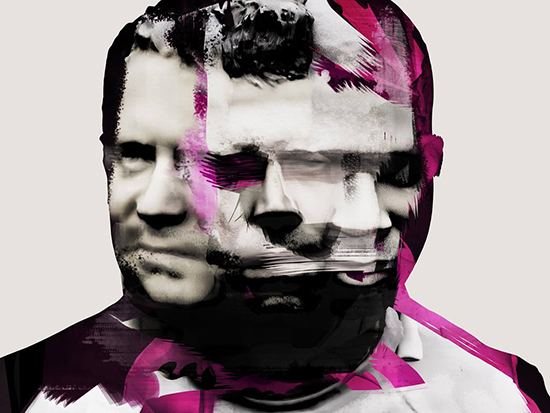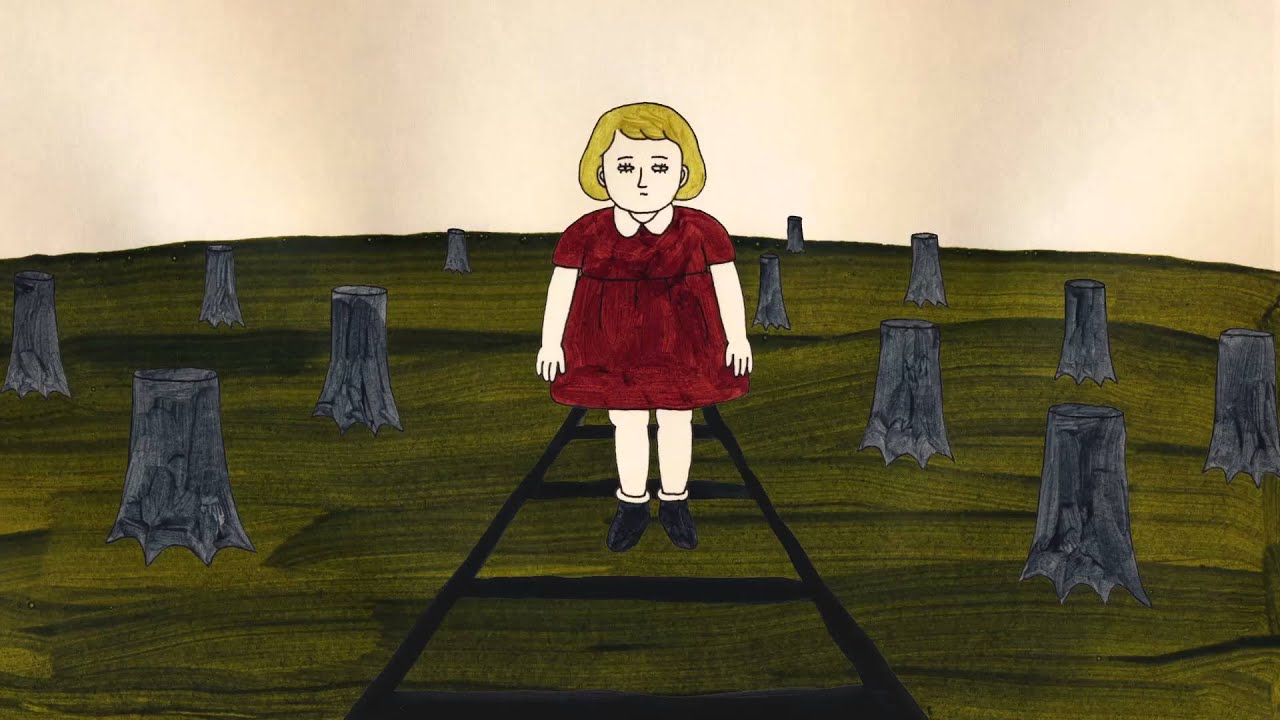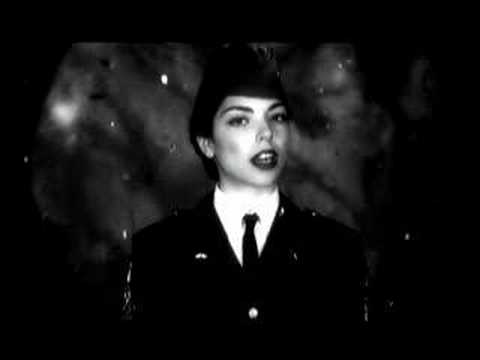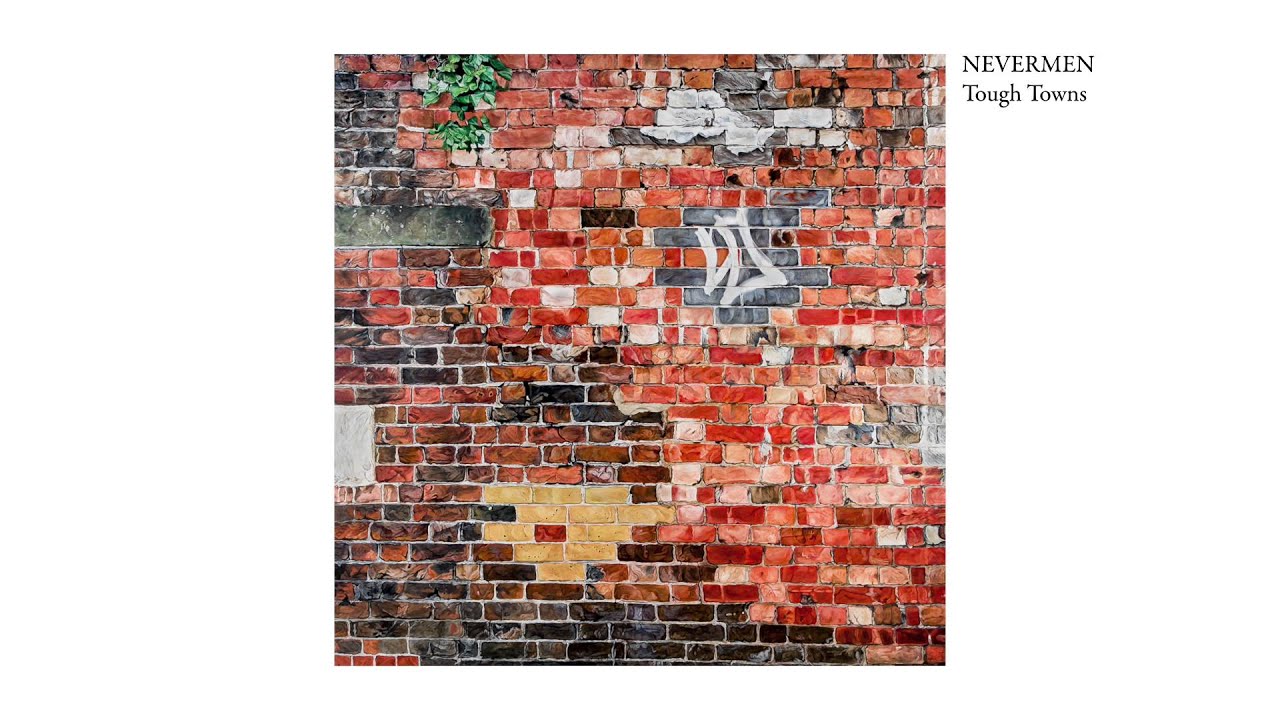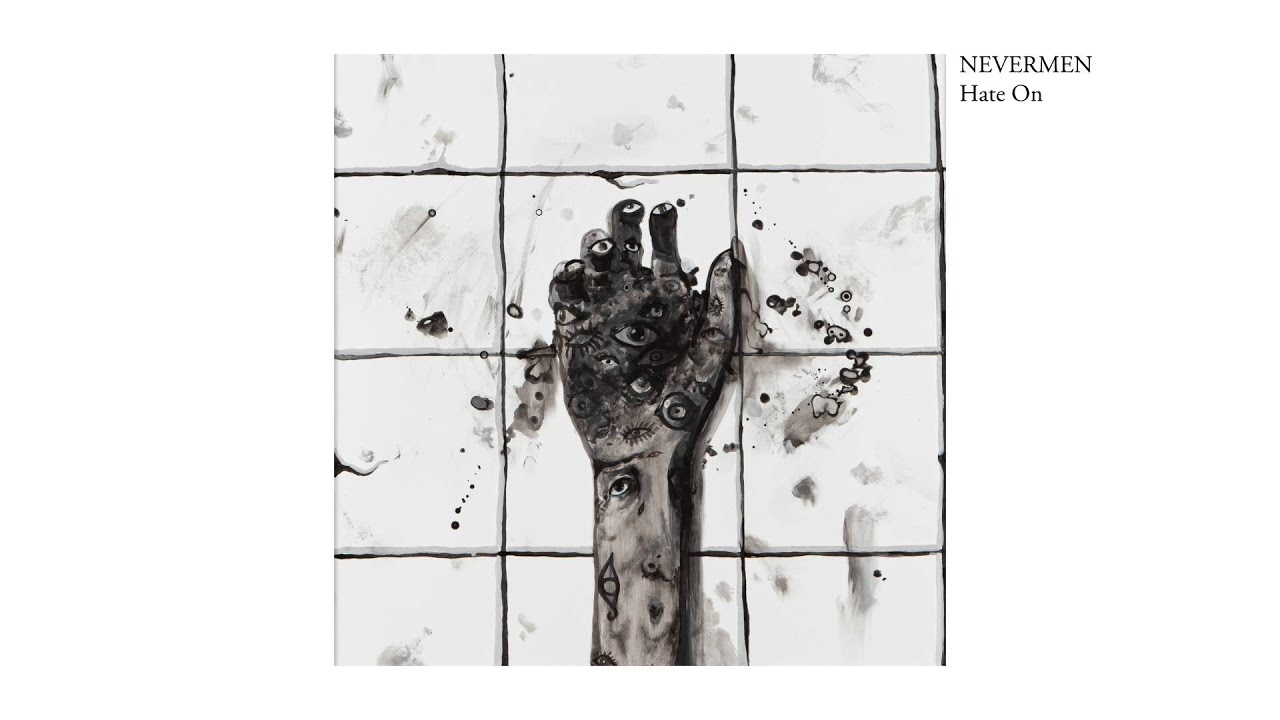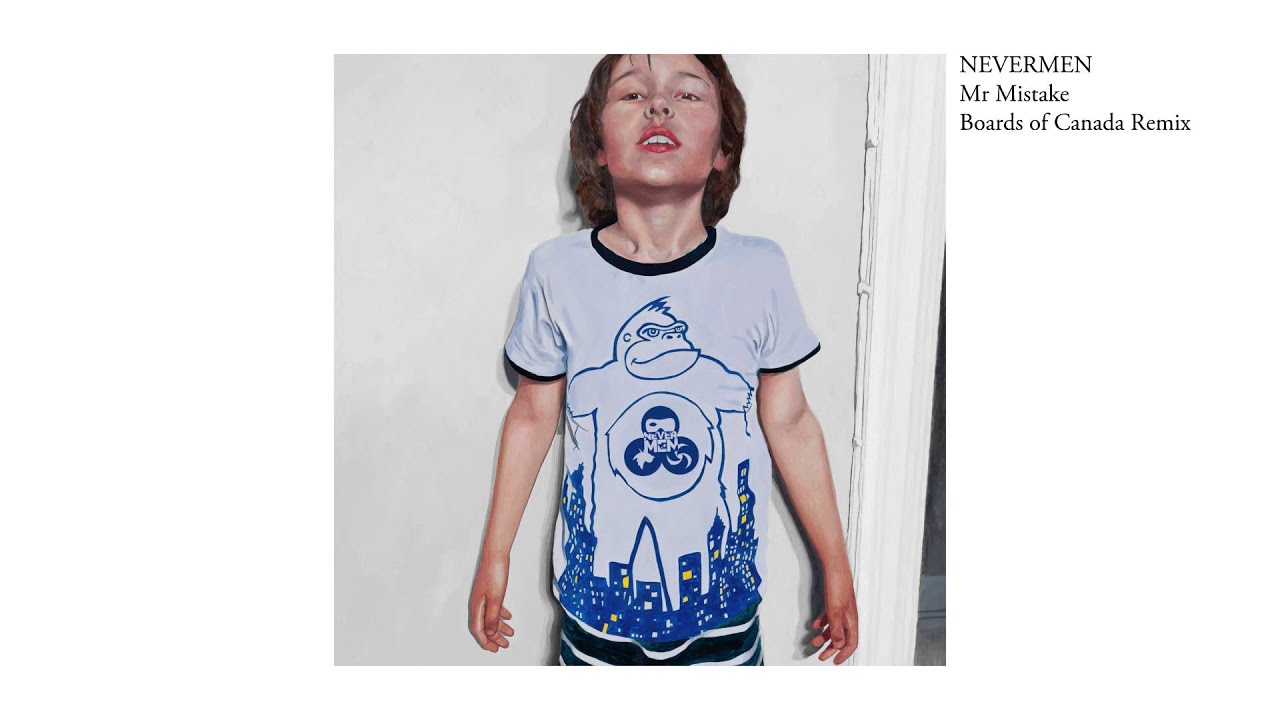It’s rare to hear a record that has been made without pressure, without deadlines forcing a cut-off point or compromise on some aspect that might have been more complete had it been given time to mature. Nevermen was produced without interference – that is to say without money being spent or the need to finish quickly and tour – by Mike Patton, Adam ‘Doseone’ Drucker and Tunde Adebimpe over eight years, resulting in a hallucinatory jubilee of an album, something which is, says Drucker, "just beholden to itself and finished with grace".
The trio developed demos one by one as time allowed, in the meantime completing everything from the new TV On The Radio album Seeds to Doseone’s unique solo album G Is For Deep and Sol Invictus by Faith No More. The Nevermen songs were allowed to become what they needed to be.
All three are delighted with the outcome, Adebimpe doubly so because the experience of recording has evaporated over time and he has the critical distance which allows him to truly enjoy the songs. Patton, unfortunately unavailable to interview alongside his bandmates, enthusiastically agreed to produce something with Drucker before crossing paths with Adebimpe at an Australian festival. Adebimpe, a Faith No More fan since the age of 14, admits to being starstruck by Patton’s eminence, to "saying hi before nervously looking at my feet and walking away".
But Adebimpe’s shyness is misplaced given his own white-hot pace of creation. His collaborations and unexpected offshoots have produced unique and exciting songs like ‘Province’ with David Bowie or ‘Pray For Rain’ with Massive Attack. Highlights from Drucker’s myriad one-offs, meanwhile, include ‘Weight In Song’, part of the BOATS album made by Scottish film-makers Transgressive North to benefit the Light Of Love Children’s Home in India, or the celebrated Boards Of Canada remix of ‘Dead Dogs Two’ by cLOUDDEAD, a song which was strangely and unexpectedly covered by Jack White in San Francisco in 2014. Boards Of Canada have contributed to Nevermen by way of a blissful ‘Mr. Mistake’ remix, which comes about, as Drucker explains below, following an unexpected meeting at the final Incredible Warp Lighthouse Party back in the year 2000.
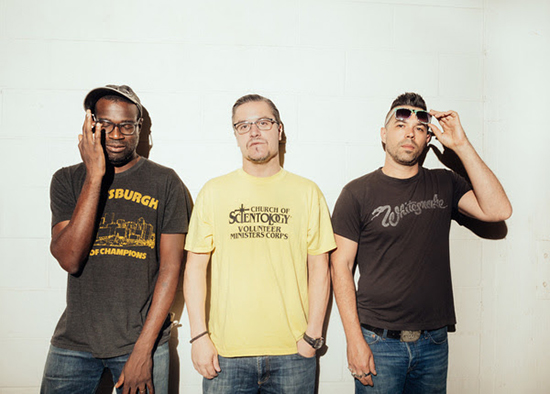
Tunde Adebimpe
On the Nevermen song ‘Non Babylon’ there’s the idea of ‘the frontman digesting himself’. Which frontmen did you admire growing up? Was there anybody that you emulated or pretended to be?
Tunde Adebimpe: I never had a Mick Jagger phase – I didn’t have the hips for it. But is Michael Jackson a frontman? He’s just in his own idiom. Seeing a performer like Michael Jackson, or when I was 13 or 14, seeing Public Enemy doing some tour after Fear Of A Black Planet. I remember looking at Chuck D and thinking this is somebody who’s the focal point but not really fronting it, like the still centre of this incredible storm. I remember thinking that was a cool way to do it. And Iggy Pop. I remember Iggy Pop. If you’re up there onstage you’ve got to do something – and you can actually do anything.
Do you feel you’ve learned anything from watching Iggy Pop? From his performances, perhaps, or his self-belief?
TA: Yeah. Even as a fan, as someone who’s into his performances, the Stooges and his own stuff, Iggy is one of the people who kept underlining something that a lot of my older musician friends with punk roots say: you get into this space in your life where you feel like a weirdo, you’re marginalised, you don’t fit in… and then you can get up on stage in front of people who probably hate you. And you should assume that they hate you. But you make them realise during the course of the show that no, you’re here to see me. This is my room and you’re gonna deal with whatever happens.
I think I’ve even heard Iggy say that. There are people who kind of let you know that you can silence the room. You can do it in a very loud way, or you can do it in a very quiet way. It’s not even respect, but you can shake attention out of someone even if they despise what you’re doing.
TV On The Radio and Iggy Pop have a person in common in the shape of David Bowie. Do you share the sense of loss that characterised the start of this year?
TA: Even just talking about it now you get this chill down the back. Of course, hearing that Bowie passed was like you don’t really believe it. It’s as if the sky shifted a little bit, to remind you it was there.
In the limited time he spent with TV On The Radio, he was the sweetest person, the most humble, hilarious person. That’s the thing I remember the most. He kept cracking everyone up and kind of shocking everyone, pushing everyone out of the slack-jawed silence I’m sure he got a lot. People would be talking but the only thing they’re thinking is: "Oh my god… you’re David Bowie."
Of course now you feel like you’re in one of those times – everyone who lives long enough lives to see people passing away, from idols to family members. It sweeps through everything. And you always have the idea that nobody really wins at life, you know? But if anybody won life, David Bowie did, at least as a creative entity in the sense of writing yourself into existence and writing yourself out in such a graceful swoop.
What did you learn from recording ‘Province’ with Bowie?
TA: I guess that whole idea that imagination exists because reality is neither sufficient, nor real. The lesson is that if you push hard enough you can change. You can take everything you know and round it up, turn it into something else, and keep turning things into something else. I guess it’s the idea of possibility, of following that idea wherever it’s going to take you, and never getting stuck.
A pretty jumbled answer, but that was his example, and the example of several hundred people over the course of time. People who say: "Actually this doesn’t really work for me. I’m going to show you something different, and it’s going to be absolutely from my heart because my heart is different. I’m going to show you that, and you’re going to realise that there’s something in there for you as well."
The Nevermen song ‘Tough Towns’ asks whether you can change yourself and transcend the person you were when you lived in a certain place. Do you feel that you can become a different person in that way?
TA: I think you can add on to that person. Even trying to negate that person, you have to recognise that person in order to negate it. You’re building on whoever that was. I was born in St. Louis and lived in Pittsburgh for a bit, before my family moved to Nigeria, where they’re from. We lived there for three or four years and came back to the States when I was about ten. I realised that I’d gone from place to place not fitting in. The thing that helped me fit in when moving around and not having a ton of friends was that I could make art. That was the through-line. There was something in me, even leaving fifth grade, that hit me and said, "I have to get out of here. I don’t know where, and I don’t know what else I can do but I’m really not going to end up like any of these people."
That takes you through your teenage years, and your worldview gets informed by the type of music you gravitate toward, the people you gravitate toward. Being 15 and like a punk in the DIY community, basically being with a group of people like no one else, it was the first place to exclude or call out if people were racist, sexist, homophobic or in any way prejudiced. Realising that yeah, I want to be around these positive, expressive people who are doing something different and who also want to get the hell out of there and don’t want to be around basic human bullshit.
But I will say for me, the idea of leaving the place that you’re from? You can physically move yourself around but there’s that great line that Adam wrote: "Does it define for life, like print of thumb?" I think it does. Whoever that ten-year-old was is still piloting my brain and informing my choices. Those are the posts that you’re driving between and you need to remember that no matter how old you get or how many different situations you’re in it’s always with you. I don’t think that’s necessarily a bad thing. It can carry you forth.
In the past eight years you’ve gravitated towards people like Mike and Adam. What do you find compelling about Adam’s writing and lyrics?
TA: Adam is one of my favourite writers, period. He has such a unique voice and he’s somebody who I admire so much for putting the effort into inventing his own language and furthering it. There’s a line on the album, "You change the alphabet to keep yourself busy." He’s one of the few people who, from the moment I heard anything, be it cLOUDDEAD to Themselves and 13 & God, everything, I just loved. It’s weird to say someone’s such a great poet, like those words aren’t adequate, but he’s such a great poet. He really is.
You can discern a story or narrative on the Nevermen album to do with an imagined frontman and the dangers of fame or compromising your art. What story, to you, is told by the ten tracks on the record?
TA: There were definitely conversations that Adam and I had after TV On The Radio and Subtle toured together, which is how Adam and I met, and hanging out in New York after, where we talked about the idea of a band and a frontman, what that means, and the idea of working as a musician no matter how many eyes are on you. There are a lot of spikes that can happen when what you’re doing starts to get attention or people start to talk about it. They can just kind of really do a number on your reasons for making music. I don’t want my reasons to be informed by what people think about what I’m doing, so it turns into this whole hall of mirrors. You can get lost very easily.
The ten tracks on the record are portrait shots of different aspects of that. Like ‘Shellshot’, where it says, "Like a bag of diamonds being struck by a crutch", that’s all about being shoved into promotion and having to take pictures. People are much more groomed for that now than 20 years ago. People are like: "I’ve got all my press shots ready, I know exactly what it is, I’ve got my look." I feel like now if you’re going to start a band you have to have an Instagram full of yourself looking a certain way, lined up like five dudes in mugshot alley, hanging out by the bridge or up against the wall, or "We’re in a library for some reason!" That song especially touches on the idea of how awkward and strange that can be.
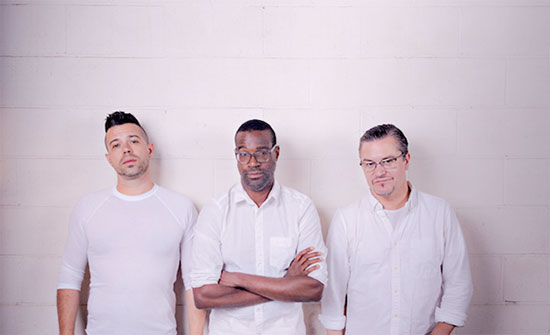
Adam Drucker
Nevermen was almost eight years in the making, though I gather that’s because you were completing songs one-by-one, when schedules allowed.
Adam Drucker: In a perfect world, not rushing and letting the songs be done when they are is how everyone would like to work but doesn’t get the opportunity to. And because there’s no money spent on Nevermen – it’s like friends, like how real people would make an album – we could ignore any of the other self-imposed pressures of finishing and rushing any aspect. It’s nice to actually slow-cook a meal for once.
Did you find Mike a hard taskmaster? Would he say: "These are good, but you have to do A, B and C if you want to make this better"?
AD: You know those scenes in movies where the husband comes home and the wife has put all his belongings on the lawn? The husband’s like, "Oh my god all my shit’s on the lawn!" That’s how Mike guts a fucking track. What I love about working with Mike is there’s no grey area. I yearn for it in all of my collaborators now. It’s either doing it for the song or it’s not. And if not, he throws it the fuck out the window.
Most creatives, or indeed any people, you ask, "Hey! Do you like this blue paint?" And they give you exactly what you didn’t ask for: something between an opinion and an answer. Mike would just say it, know it, and we’d move the fuck on. I really like that. It wasn’t like I had to do more push-ups in front of him, ever, musically. But he had carte blanche to throw shit away. I think that’s important. Respecting one another’s right to throw shit away. He cut two beats out of ‘Tough Towns’. Working with another unpredictable producer guy is completely refreshing.
You’ve said that ‘Hate On’ is one of your favourite Nevermen songs. What is it about that song that holds your affection?
AD: It’s the one that gives me chills. It’s incredibly minimal, and I get it. Already I can see some unwanted haterade. The other songs deliver rather complicated concepts in a complicated fashion – or slightly simplified – but ‘Hate On’ is a single pill.
What I like about the Nevermen record is that stuff became what it is. We didn’t try to make everything into hits. There aren’t any singles; we had to force the ‘singles’ [‘Tough Towns’, ‘Mr. Mistake’ and ‘Hate On’]. We tried to make an album as that’s what we wanted to make together. I like that ‘Hate On’ is a bizarro intro-outro thing in the middle of the record. It doesn’t have a dad. It’s just doing what it wants.
It’s only about haters because the first thing you hear when Tunde sings, he’s not actually saying "hate on". He’s singing through this giant carpet-tube, and it sounded like "hate on". But to me it’s not actually about Rick Ross-type of haters; it’s not about the modern hater. The lyrics are about how music has changed, people’s appreciation of music, how hard it is to be an indie dude working. You should spend all of your hate on that shithead who bought the Wu-Tang album and raised the price of his AIDS drug. These are the guys to whom all hate should be directed.
Does the Nevermen album follow a Subtle-style narrative, addressing different aspects of music-making, fame and success for a fictional frontman?
AD: Yeah, very much so, and less gilded in its presentation of that concept. When I try to write stuff it’s never meant to be preachy in any regard, but it is nice to get it right, to say it fuckin’ right, whatever I’m feeling. I think the Nevermen record presents the resonant truths that we three front-dudes have in common that are relatable to other people.
Tunde expressed a particular admiration for ‘Shellshot’. Could you tell me a little bit more about that song? It’s one of the more aggressive songs on the record.
AD: ‘Shellshot’ is funny. We didn’t want to do any press photos for Nevermen because it fucking sucks, man. That’s the weirdest shit in the world. Taking a picture with your high school buddy at a picnic, in the middle of summer when you’re drinking a beer and it’s so fun and a blast? That’s what cameras are for.
So ‘Shellshot’, and the bag of diamonds being hit with a crutch? Tunde’s the same way as me, we’re really proud of our music but we’re not really proud guys. I might have crazy haircuts but I’m not driven by 200% vanity. ‘Shellshot’ is a chance to be poetic and angry and honest about how unimportant that portion of things is. These songs are written about things that the three of us can stand behind, as opposed to our opinions on processed ham. We stack the deck with stuff we can really shout about.
And ‘Shellshot’ was one of the sloppiest creatures, too. I think ‘Shellshot’ went into the oven twice. We didn’t know about it for quite some time. Then it got its shit together. Some of the demos were literally just yelling and banging. ‘Shellshot’ was one of them. That one was hit with a rock at the back of the village and got put down the hard way.
Some of your best tracks over the years have been the unforeseen remixes and unexpected collaborations. Do you recall how it felt to receive Mike’s remix of ‘Long Vein Of The Voice’, for Subtle?
AD: Back then I didn’t produce at all, so Patton was twice as magical and mystical to me. Being able to hear what he hears and then execute it – I’m used to seeing a guitarist do that, like, "Ooh, I hear the riff." With Patton, he gets a look in his eye and he’s like "I hear something…" And he comes back minutes later with a Balinese breakbeat with a Morricone twist.
‘Long Vein Of The Voice’, I was like, what is going on with this dude? What did he turn this into? All that voice. If we do more stuff together then more than half of it has to be natural, where you’re just allowing voice to be everything. Also too, he does this thing the same way that Aphex does, he has such a raw talent that he makes choices that I wasn’t aware were even options. Adding instruments to parts of a song and having them somehow find a pocket. That to me was a huge lesson. Like, there’s more than 808s in the universe.
The Nevermen song ‘Non Babylon’ seems to attack the idea of vain frontmen, but it’s also one of the most transcendent songs. It spirals upwards at the end in a similar mood to the end of Mulholland Drive, where you’ve got a destitute actress who still dreams of being a dazzling star in a perfect world.
AD: That song is definitely a spotlight on a lonely dude. We didn’t have any visual component that we were striving for when trying to end the song, but it was cinematic and that’s just something that Patton really hears. That’s what ‘Non Babylon’ culminates into. He’s a great song-ender. It sucks back into itself and it’s not too rocky, not too rappy. Musically it’s about obeying the line, because most rap songs don’t really end in that cinematic fashion.
The rock aspects, what Mike added and the way he and Tunde can sing, I think they’re more endearing as far as wrapping everything up at the end. Because we tried everything. If something was rapped on the record it was also sung. At one point we were talking about remixing every verse. I have everyone doing every line – the whole record could have been interchangeable.
What was your first point of contact with Boards Of Canada, who remixed ‘Dead Dogs Two’ for cLOUDDEAD and now ‘Mr. Mistake’ for Nevermen?
AD: This is full of fun names and tiny stories. A million years ago, when I had just put out the Circle album [a collaboration with Boom Bip], and then cLOUDDEAD got picked up by Ninja Tune, our publicist introduced me to Prefuse 73. He had just been signed to Warp and I wanted to meet him because I loved the Savath & Savalas first record. Long story short, he’s flown out to do his first Warp gig ever, and it’s the last of the big Warp lighthouse parties, and apparently the only show that Boards Of Canada ever left the house for.
So unbeknownst to me, I just know I’m going and I’m a huge Boards fan, Autechre fan, of everything on Warp. I worked at Amoeba Records, I was the pop buyer, and Dax [Pierson] the keyboard player in Subtle is exposing me to all this music. So I hand-wrapped all these cLOUDDEAD 10"s and made all these stuffed animals. I used to switch the heads of stuffed animals and give them to people. Autechre were straight up: they looked at me like, "Who the fuck are you?" They totally gave me the hip-hop face. I ended up giving their stuffed animal to Björk, who I also don’t think really enjoyed getting a stuffed animal.
But lo and behold! I didn’t know where to be, I was not famous, it was like Björk and Aphex and all these people in the front of the tour bus drinking beers, and I just did not feel good. So I go in the back where it’s really dark and there’s two couples sitting in the back and I’m like, "Hey. Hi… how are you guys?" And it was Boards and their girlfriends. I was like, "No! It’s you!" And they fuckin’ loved the stuffed animals, and then they went home and listened to the 10"s and went out of their way to email me, and really loved cLOUDDEAD. It was like the universe just opened up. We had this totally human interaction at a giant rave.
I asked them for the cLOUDDEAD remix and they said yes, then I figure it’s been a minute and I love them and I miss them, and we ask them about Nevermen and they immediately say yes. They’re such ninjas. The talent and confidence it takes to make their music as consistently and as warmly as they do. Not only is it beautiful and stunning and giving me feelings and making my head drift, but what they choose not to put on a song is just so good, man. I may be blessed with the powers of ADD or something, but I really am in awe of what they create. I listen to their music and I’m like, "Hot damn! This is some pristine decision-making!"
Nevermen is out now on Lex Records

